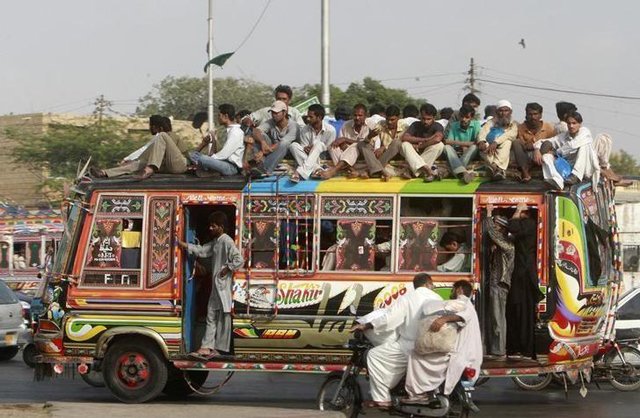
On the last day of the census, the official reports suggest population of the city at around 14.679 million far less than that of 2017 census.
The latest digital headcount includes 77.07 million males, 69.70 million females, and 1,302 transgender people. Nevertheless, officials confided over a 100,000 families have yet to be registered.
By the evening of April 14, the enumerators had counted 2.822 million households. As per the digital census Karachi has 1.98 million commercial structures and 2.82 million housing units, and 2.94 million households.
Despite efforts to ensure an accurate census, workers have reported difficulties in recording residents accurately, particularly in flats and houses of all kinds where access was not possible. To address this, the provincial government had partnered with the Federal Bureau of Statistics, who used artificial intelligence software to identify loopholes in Karachi's blocks and enumeration data.
However, census workers have noted that the short time given to calculate the figures was the most difficult aspect of their work.
On April 10, the government shifted the responsibility for enumeration errors to polio workers in Karachi, who were given until April 15 to complete their responsibilities. Despite this extension, a data checker, requesting anonymity, said it is impossible to check the data completely before the deadline.
Workers are urging the Federal Bureau of Statistics to give more time to ensure an accurate census, officials said. The accuracy of the census is critical for the allocation of resources and the provision of public services in the city, they said.
The rollout of the country's first digital census was marred by connectivity issues and malfunctioning devices from day one.
Under the digital census, every structure was to be geo-tagged. The door-to-door enumerators were supposed to ask questions from people and enter their responses in the software on their tablets.
Published in The Express Tribune, April 15th, 2023.

1719660634-1/BeFunky-collage-nicole-(1)1719660634-1-405x300.webp)

1732276540-0/kim-(10)1732276540-0-165x106.webp)

1732274008-0/Ariana-Grande-and-Kristin-Chenoweth-(1)1732274008-0-165x106.webp)












COMMENTS
Comments are moderated and generally will be posted if they are on-topic and not abusive.
For more information, please see our Comments FAQ